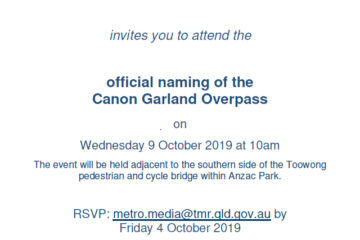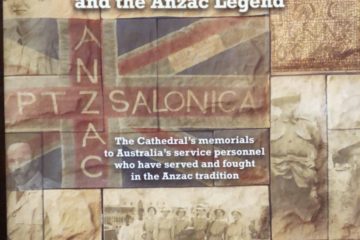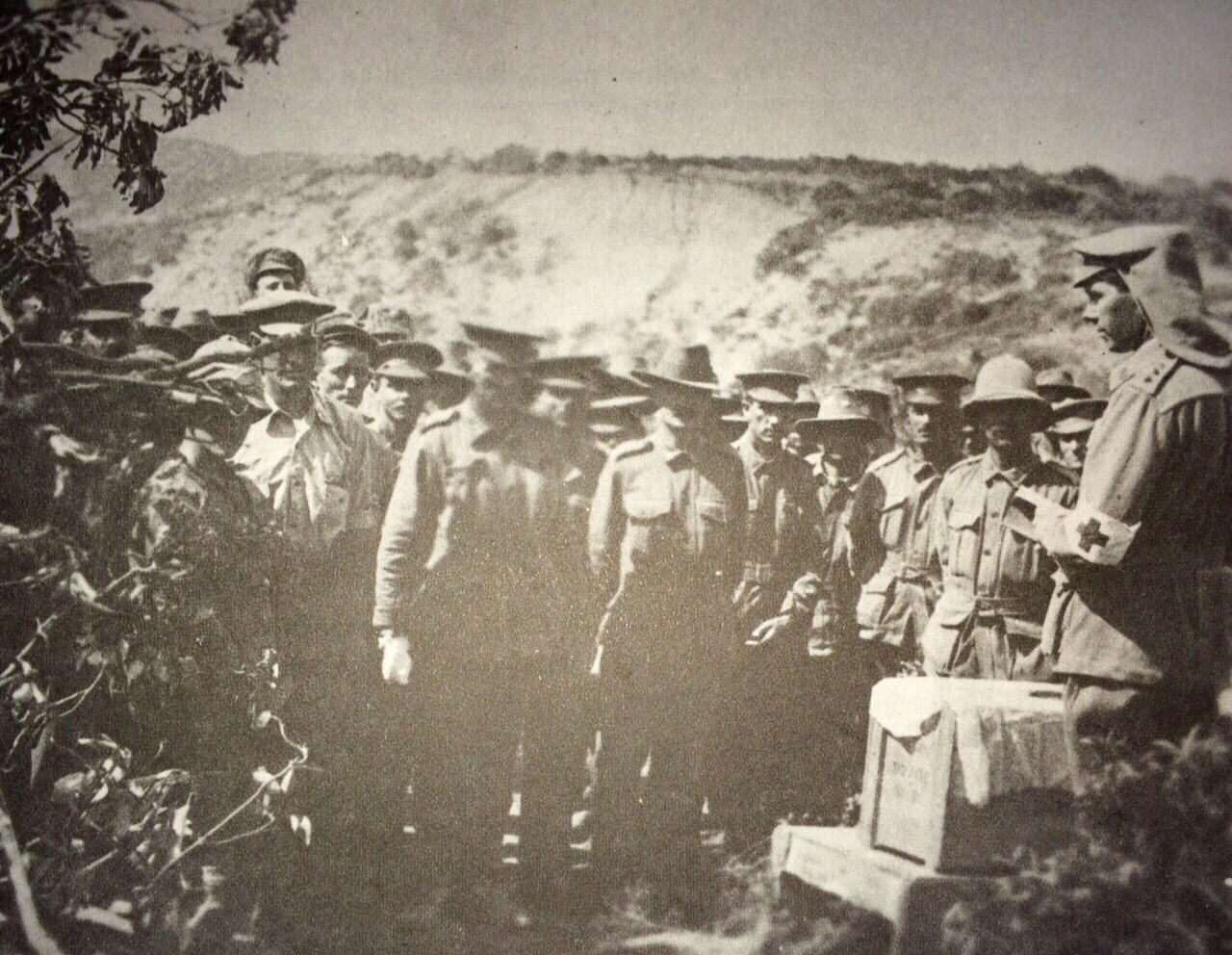Helping the troops
CHURCH WORK
FOR SOLDIERS.
EGYPT, PALESTINE,
AND SYRIA.
SOLDIERS’ CHURCH OF
ENGLAND HELP SOCIETY.
THE [ Soldiers’ ] Church of England Help Society has received a report from their representative abroad (Colonel the Rev. Canon D.J. Garland, V.D.) [ David John Garland ] containing a report of the Society’s work in Egypt, Palestine, and Syria for the six months ended March 1 [ 1919 ] last.
The report opens with a fine tribute to the troops in this area of the war, including our own Australian Light Horse. Referring to the cessation of hostilities it says:
“Towards bringing this about, our troops here have made a magnificent contribution.
“It is not too much to say that the collapse of the enemy throughout the world was at least hastened by the cavalry feat which, sweeping Palestine and Syria in a manner unknown in history, ensured Turkey’s break-away from Germany.
“I fear that the hardships endured and the magnificent fighting done by the Australian Light Horse have not been fully realised in Australia, and yet it may safely be said that nowhere had our Australian soldiers harder conditions or more strenuous fighting or less relaxation and comforts, which facts make our work all the more necessary.”
The happily altered circumstances of the Soldiers’ Help Society work in Egypt has meant the withdrawal from some, and the opening up of new phases of activities, and has shown the advantage of having its representative on the spot, who is able to act promptly as demands arise.
Further extracts with reference to the work are as follows:–
“The Australian Soldiers’ Club in Cairo increased in popularity so much that I had to double the accommodation.
“That it is appreciated by the authorities as well as the men can be gathered from the following extract out of a letter just received from Lieut. Colonel John H. Bisdee, V.C., [ John Hutton Bisdee ] Provost Marshal, Egypt.
“The letter referring to The Cairo Club says:
‘Your institution has fully justified its existence. Men who have been staying at your club all speak very highly of the comfortable accommodation and good food supplied there. Institutions of the kind assist my department more than anything else, for practically all the disorder among soldiers here is caused by their frequenting these parts of the city where bad drink is served, whereas most of them prefer a cup of tea or coffee it they can get it in comfort. We are all very much indebted to you for supplying good wholesome food and accommodation at very moderate rates.’
“Colonel Bisdee has also expressed his admiration of Miss Dudgeon’s work as manager of the club, thus endorsing the Society’s policy of sending out women workers from Australia.
“The Port Said Club continues its usefulness. Demobilisation has meant a reduction in numbers at the rest camp, but when the question of closing down because of increasing expenses was being considered, the distinct request of the military authorities was that we should continue, and at present Miss Morris finds plenty to do in the work to which she devotes herself.
“The supply of medical comforts such as arrowroot and Benger’s food to convalescents proved so successful that at last it grew into a Red Cross kitchen with a Red Cross worker in charge, for which purpose we supplied a marquee to the Red Cross, glad of an opportunity of co-operation with a kindred organisation.
“Later on our club was asked to resume the supplying of medical comforts, and accordingly we did so, and continue to this moment.
“During Christmas and New Year I had a long journey, reaching beyond Homs in Syria, visiting almost every unit or group of Australians during that time. I was also to give them, after personal inspection, grants either in money or in kind to help their Christmas, supplementing the magnificent work done by the Australian Comforts Fund in this direction.
“Our grants were chiefly in providing things that could not he sent up from Cairo, but could be found locally, such as fresh meat, vegetables or fruit, or whatever the unit desired.
“At The Cairo Club on Christmas Day we gave the men a free dinner and tea. I was away, and heard afterwards that the boys greatly appreciated it and said it was the nicest dinner they had had for a long time.
“Similarly, at The Port Said Club, where we could not give them a proper dinner, we gave them, then and on the day of the armistice, free refreshments.
“The Jerusalem Club was necessarily closed on the withdrawal of our troops, but it fulfilled a very important work during its existence, and whenever I visited it I found it crowded.
“There was no other spot so close to the Holy City where soldiers could obtain refreshments and rest.
“I am indebted to Mrs. Jacomb, Lady Allenby’s cousin, for his honorary work at The Jerusalem Club, for which she left Cairo and lived in The Jerusalem Club all the time it was open.
“The house boat on the Nile continued good work under Mrs Bisdee until after the winter began, when it was closed owing to the winter darkness and weather. I had intended reopening with the summer, but happily that will not now be necessary.
“The club we erected at Moascar proved a boon and under the educational scheme is used every day for that purpose. At Ismalia the tennis courts are now in daily use.
“Included in entertainments is a grant of £100 to a concert party originated by Desert Corps headquarters, which was formed to travel about and give the men healthy entertainment.
“Lieut.-Colonel Farr, A.A.Q.M.G. [ Walter Percy Farr, Assistant Adjutant and Quarter Master General, 2nd Division, 1st/3rd Light Horse Brigades, Desert Mounted Corps ], writing me a report last month said:–
‘The party has been a great success everywhere, which is really due to the great assistance given by yourself financially and otherwise I must say that your financial assistance in the matter of the concert party has given many thousands of Australian and British soldiers a cheery and bright evening right throughout Syria and Palestine.’
“Our latest venture was to open a club at Homs in Syria, then the most advanced post held by Australians. I made the arrangements and opened the club when I was there.
“Subsequently when the Desert Corps H.Q. moved to Aleppo the club was carried with it.
“Colonel Farr, writing to me last month, in his report, said:–
‘The Australian Club is now in full swing in Aleppo. Tea and biscuits are served there every night, and as the weather here is very severe just now, the club is greatly appreciated by the troops in and around Aleppo, this club being the only one of its kind for 230 miles around here.’
“An example may be given of the advantage of our fund being able to step in for a special need. At the demobilisation camp at Rafa, a General asked me if I could provide fish as a change of diet for the men who had had no such food for years.
“The fish were in the sea, but there were no means of catching them. I took the matter up in co-operation with the canteen at Moascar camp, imposing the condition that all fish be supplied free and to the regiments in turn.
“The result is we now have a fishing boat with native fishermen, and every week a fatigue party of our boys is told off to look after the boat, and they enjoy the wholesome change of this work.
“Speaking above of co-operation, I am very glad to be able to say how happily this continues in our work with other bodies and with officers.
“In a farewell letter from Colonel W. Maitland Woods [ William Maitland Woods ] Senior Chaplain A.I.F., in Egypt, he writes:–
‘You have been a true friend to all of us chaplains, and I don’t think I know of a single case where you have refused to help any movement which might benefit our troops when such movement has been suggested by any individual chaplain or commanding officer. Your work in Jerusalem, in Moascar, Port Said, and Syria, I feel sure, will never be forgotten by our Australians’.”
Canon Garland’s report continues:–
“I expect my next report will be a final one, and that it will be issued in Australia on my return, which I hope will be within the next six months.
“Meanwhile I wish to assure all our workers and supporters throughout Australia, who responded so willingly, that their work and money have not been in vain.
“Many a boy has had comfort and above all the assurance of love originating it. How far we have done good morally is not to be put into words, but at least we know that our clubs and our touch with the boys has kept them away from anything worse.”
The report closes with an appeal for the continuation of the Soldiers’ Church of England Help Society work in the new sphere of repatriation on their return home.
This appeal is very opportune in view of the near approach of “Lavender Day”, the proceeds of which are to be used to provide hostels and rest houses, and to assist in every possible way in this work.
He says:–
“There remains much to be done. The boys will not return normal; their experiences have been too dreadful, their isolation from home surroundings unnatural.
“It is of vital importance that loving care should guide their footsteps back into civilian life. There will be many kinds of welcome but not the least amongst them should be the continuing of the work of our fund.
“Each diocese should have now its own administration for returned soldiers, governed perhaps by a central federation which would direct a general policy for the Church of England in regard to returned soldiers.
“The relations established on all fronts, between the Church and such an immense body of men will, if kept alive, mean much to them and not a little to the problem of the Church’s hold on men.”
– from page 9 of “The Brisbane Courier” of 30 April 1919.
PICTURED ABOVE: The work of the Soldiers’ Church of England Help Society in the Middle East theatre of World War I was mostly appreciated by First AIF troops a long way from home. Canon Garland co-ordinated the activities of the Society in Egypt, Syria, Jerusalem and Palestine between 1917 and 1919. Canon Garland (in spectacles and his chaplaincy uniform, looking directly at the camera) appears at the rear right of this photograph.


